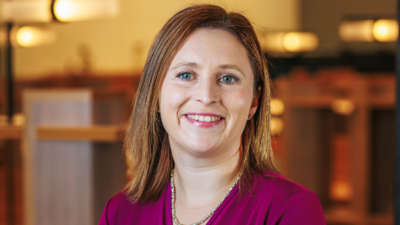Getting back to normal with Franklin Templeton
The COVID-19 pandemic has changed how global consumers learn, shop, travel and work, as well as how they fulfill entertainment and health care needs. Franklin Equity Group’s John Remmert and Donald Huber share which trends they think are permanent and which are likely just a phase.
Dealing with the COVID-19 outbreak has forced a drastic change in human behavior. The global pandemic’s severity and the unprecedented measures to stem the spread have made it difficult to envision what the world will look like after the outbreak subsides and humanity starts to get back to something approaching a new normalcy.
Although social distancing and stay-at-home orders are currently the norms, many of the technological trends that have emerged or accelerated to help people cope in the current moment may not last much beyond the outbreak, in our view. As social animals, we expect human nature to reassert itself, ultimately limiting the impact recent technological changes will have on our daily lives over the longer term.
For one, we believe the technology that has allowed those who can work remotely to do so through video conferencing will never be a great substitute for face-to-face contact. In our view, video conference calls and remote working are unlikely to replace the office, conferences, networking events or the business meeting over the long run.
Other technology trends may prove more durable. Remote work has accelerated existing trends toward cloud-based computing and digitization. We expect these trends to continue long after the coronavirus outbreak recedes. Nonetheless, while workers may have greater flexibility in their working arrangements as it becomes easier to work outside the traditional office, we would expect much of how people work and interact to look like it did before the outbreak.
We do not see the home office replacing the corporate office and believe people will quickly return to working in-person once it is safe to do so again. That said, in the health care space, we would not be surprised to see telemedicine persist for minor health issues that a doctor can resolve without a patient making a trip to the office. The UK’s National Health Service, for instance, is seeing a significant acceleration in general practitioner and patient adoption of online tools during the outbreak. While much of this is out of necessity, the greater flexibility that telemedicine offers patients and doctors could help ensure it remains an integral part of health systems around the world once the outbreak is over.
The crisis also has exposed the limitations of online education for elementary and high schools in particular. Although video tools may be helpful in limited instances, in our view, trying to educate younger students 100% online through distance learning and video conferencing does not look like a sustainable trend much beyond the outbreak. The limitations are forcing many countries to start serious discussions to reopen schools more quickly than other parts of the economy.
It also is difficult in the current moment to see anyone wanting to pile into a stadium to watch a concert or see a sporting event. Still, eventually, our desire for the sense of community that comes with attending one of these live events will return. Sports leagues are exploring ways to get up and running again, even if that means playing in empty venues for the time being. Germany’s Bundesliga is planning to restart match operations and could show other sporting leagues how to safely resume operations-exclusively for a television audience at first.
Air travel is also likely to take off again on the other side of the crisis. Reaching the levels just before the crisis may take some time, but we do not expect a permanent grounding over the longer term. We expect a resumption of global business travel, again as part of the desire for people to conduct business and build relationships face-to-face. Vacation travel is also eventually going to return as the lure of beaches-or new cities to explore-pull people back to the airport once we see an end to the outbreak either through a vaccine or herd immunity.
We are watching places like Australia and New Zealand, where the coronavirus looks to have been effectively contained, to get a sense of how quickly people are willing and able to resume normal activities and interactions.
From an investment standpoint, as difficult as the current crisis is, we believe it is important to take a longer view and try to look beyond the current situation. We view equities as a long-duration asset and see opportunities even in some of those areas of the market facing significant economic pain and uncertainty. We believe finding and understanding these opportunities requires a rigorous bottom-up investment approach that focuses on the sustainability of the company’s business model and its growth potential over the longer term.
Additionally, it is important to focus on finding quality companies with strong competitive advantages, robust balance sheets and healthy free cash flows that can weather a severe economic downturn and increased market and economic volatility over the near term. Moreover, we believe financially strong companies can not only cope with the downturn, but also have the potential to gain market share from weaker peers. Many of these high-quality companies should be able to emerge from the downturn even stronger.
Although we expect heightened volatility and uncertainty over the near term as the coronavirus outbreak continues to unfold, we expect many long-term growth trends temporarily put on hold to resume once the crisis passes, and for some new technological trends to recede. Getting back to normal, in our view, is a question of when, not if.
What Are the Risks?
All investments involve risks, including possible loss of principal. The value of investments can go down as well as up, and investors may not get back the full amount invested. Diversification does not guarantee profits or eliminate the risk of investment losses. Stock prices fluctuate, sometimes rapidly and dramatically, due to factors affecting individual companies, particular industries or sectors, or general market conditions. Special risks are associated with foreign investing, including currency fluctuations, economic instability and political developments. Investments in emerging markets involve heightened risks related to the same factors, in addition to those associated with these markets’ smaller size and lesser liquidity.
IMPORTANT LEGAL INFORMATION
This material is intended to be of general interest only and should not be construed as individual investment advice or a recommendation or solicitation to buy, sell or hold any security or to adopt any investment strategy. It does not constitute legal or tax advice.









